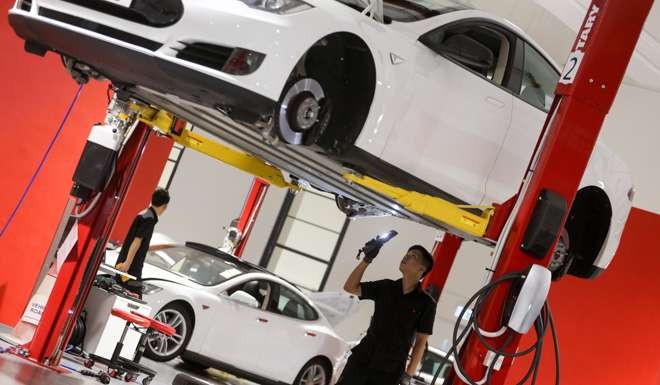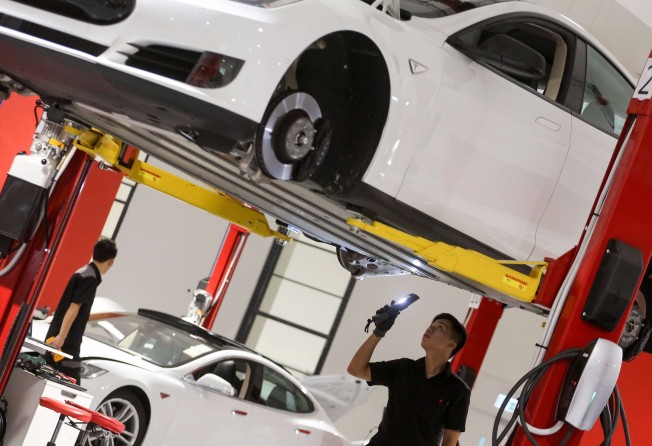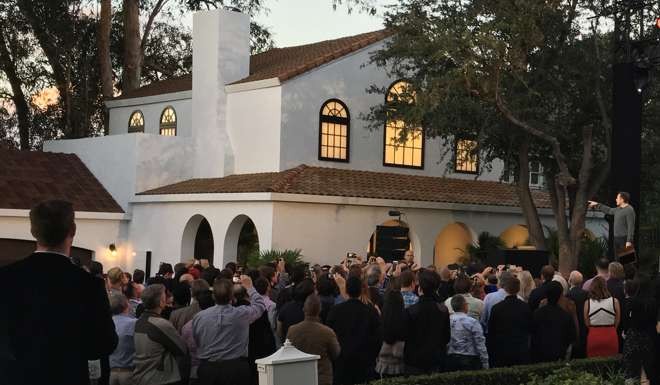
Tesla urges Hong Kong government to keep e-vehicle tax breaks
US-based firm in talks with regulators to keep the city a ‘beacon’ for electric cars as it announces Powerwall 2.0 and solar roof tiles are available for pre-order

Tesla has urged the Hong Kong government to keep tax breaks on electric vehicles as the firm eyes the city for a number of new product releases, including the new Powerwall 2.0 and solar roof tiles.
Tesla’s president of global sales and service Jon McNeill said the company was currently in talks with the Hong Kong government to extend the present first registration tax waivers for e-cars, which is due to end in March 2017.
He cited a decision in Denmark last year to repeal tax breaks on electric vehicles and the installation of an additional levy, which discouraged buyers and led to an immediate drop in sales.
“We’re really in discussion with the government. We hope that Hong Kong does not turn into an example like Denmark where all e-vehicle sales basically dried up to zero,” he said.
“Instead we want to work with the Hong Kong government to make sure that they extend the policy, to continue the city’s path to be a beacon for e-vehicles.”
Tesla is also lobbying the government to allow charging stations in every housing estate. The firm hopes that charging an electric vehicle becomes as easy as charging a mobile phone.

“We are in a dialogue with the utilities and the government to make it easier for users to charge their vehicles,” McNeill said, adding that the government also needed to coordinate with the private sector for the provision of charging facilities on private land.
McNeill said the popular Model 3 vehicle would be shipped to Hong Kong by the end of next year, with the Model X due for arrival early next year. However, a spokesperson later added that since Hong Kong is right-hand drive, the shipment date will be some time later than end of 2017.
McNeill believed electric vehicles were the future in Hong Kong, as they improved the city’s air quality and safety, and allowed for energy-independence.
Installing a solar energy system is amazingly difficult in Hong Kong. There are many obstacles because Hong Kong is very tightly regulated
His comments came just days after the California-based company unveiled its new at-home battery, the Powerwall 2.0 and solar roof tiles in Los Angeles.
During the launch, Tesla chairman and CEO Elon Musk promised both products would look “beautiful, affordable, and seemlessly integrated”.
McNeill said Hong Kong customers could now pre-order the solar roof tiles and the new Powerwall, which costs US$5,500 (HK$42,651). Both products are expected to hit the market sometime next year. A spokesperson later clarified that no formal process had been set up yet but Hong Kong customers could express their interest on Tesla’s website and its staff will provide further updates in due course.
“We’ll be expanding worldwide the production throughout 2017 ,” McNeill said.
“We will work closely with the utilities and regulators here to make the products available for consumers as fast as we can.”

Mark Webb-Johnson, chairman of Charged Hong Kong, said to install a home solar energy system, Hongkongers first had to obtain approval from power companies and government departments, such as the Buildings Department and the Electrical and Mechanical Services Department.
“Installing a solar energy system is amazingly difficult in Hong Kong. There are many obstacles because Hong Kong is very tightly regulated,” he said.
Webb-Johnson believed Tesla’s solar tiles would be easier to gain approval for as they were smaller in size and would not constitute an additional structure or destroy the aesthetic of a roof.
The Powerwall 2.0, meanwhile, with an internal inverter which converts sunlight from solar panels into electricity, is capable of powering a four-bedroom house with lights, refrigerator and other appliances for an entire day.